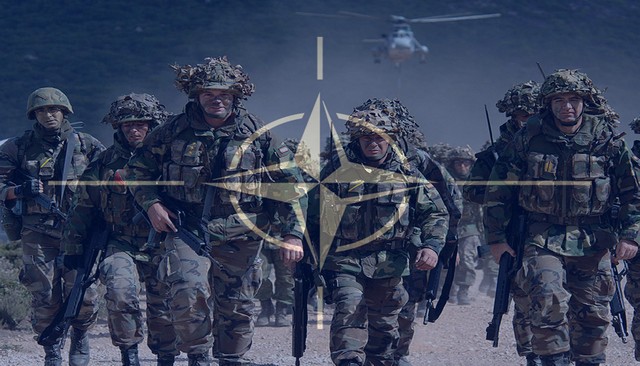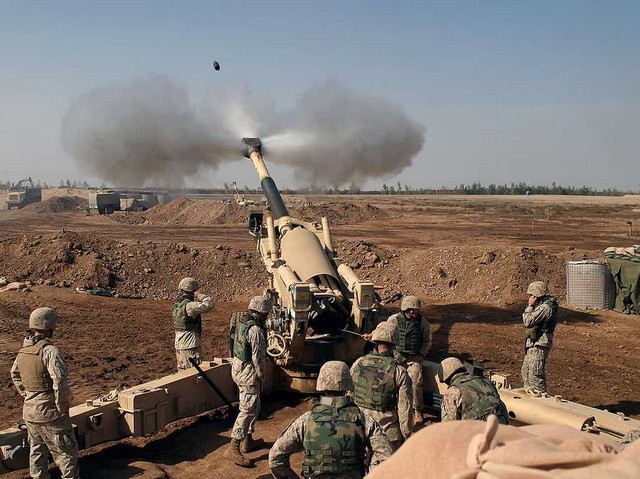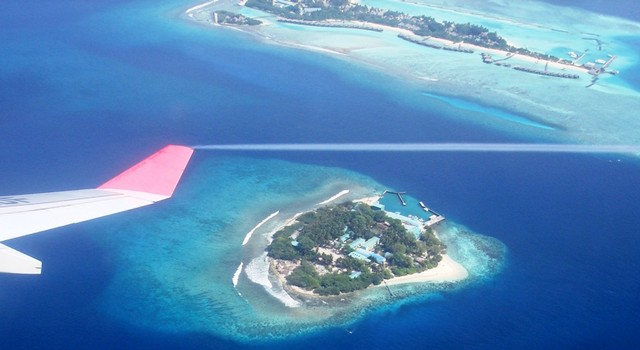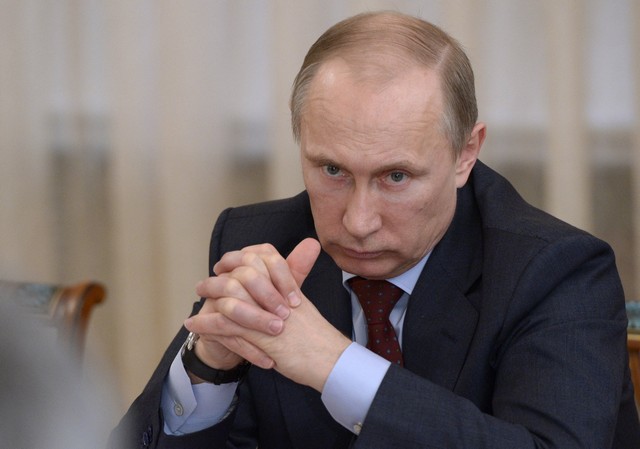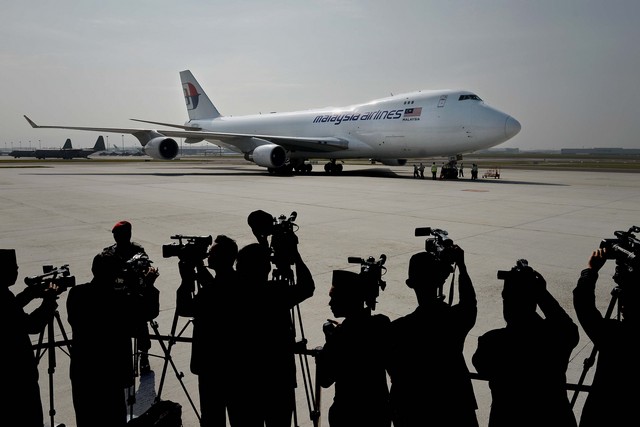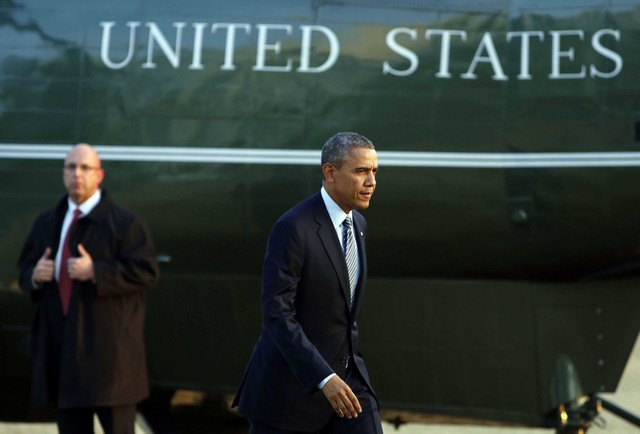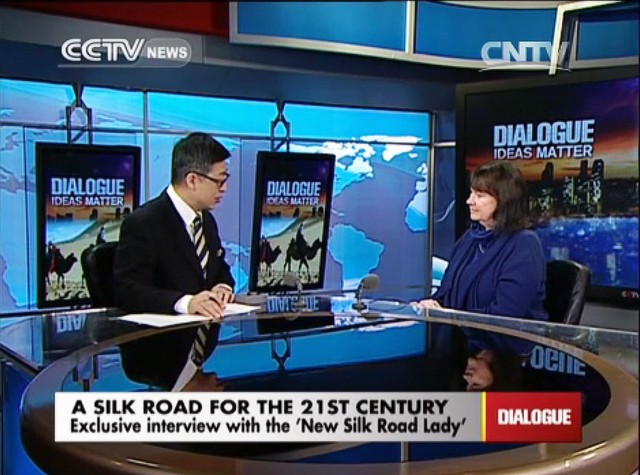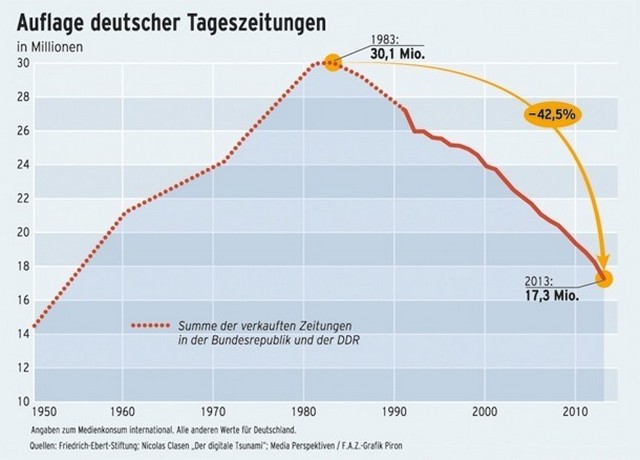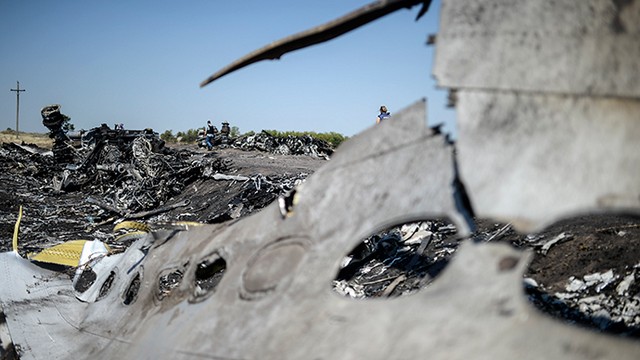by Helga Zepp-LaRouche
The Coming Helium-3-Based Fusion Power Economy
August 2014—When the authors of this study decided last year to set out a new concept for peace in the 21st Century, by producing a revised version of the World Land-Bridge program—23 years after the first proposal for the Eurasian Land-Bridge—it was their intention not only to provide a concept for reconstruction of the world economy, but to present a war-avoidance strategy in the context of an acute strategic crisis at the same time. For in the intervening years, the danger of an intentional—or even an accidental—thermonuclear world war has grown dramatically. The attempt, fed by geopolitical motives, to associate Ukraine with the EU, and thus bring it, de facto, into the NATO sphere of influence, has triggered a series of escalating confrontations, which, in the worst case, could end in the extinction of the human race.
But in addition, nearly the entire Near and Middle East is burning; set off by wars built on lies, against so-called rogue states, the seeds of violence were sown which have called to life a million-headed hydra, which has not only leveled the Cradle of Civilization to the ground, and created there a Hell on Earth, but has also become an existential threat to the West.
The consequences of this policy of “regime change” have long thrown large parts of Africa into chaos, and overrun the continent with wars of terror and civil wars. But there are also geostrategic conflicts breeding in the Pacific, which have the potential to set loose regional wars and beyond. And since absolutely nothing has been done to remedy the causes for the collapse of Lehman Brothers in 2008, the TBTF (too-big-to-fail) banks are, on average, 30-40% bigger today than they were then, the indebtedness still more massive, and the derivatives bubble grown to nearly $2 quadrillion; so that a new systemic crisis could result at any moment, this time, given the strategic situation we have sketched here, with the danger that chaos will be triggered, making a strategic catastrophe unavoidable.
The entire world thus finds itself in such an alarming condition that one can only wonder how those responsible for the so-called Western community of values could have let things get to this point.
Pope Francis, who has characterized the global financial and economic system as “intolerable,” recently put it this way, in an interview with the Spanish newspaper La Vanguardia: “In order for the system to continue, wars must be waged, as great empires have always done. But mankind cannot bear a third world war, and so it seizes on regional wars.”
Though one could not put it better than the Pope has done, in this case, he underestimates the satanic energy of the system of globalization, which is ready to defend its privileges with all weapons available. One hundred years after the First World War, we find ourselves in a very similar geopolitical situation, except that this time there are thermonuclear weapons whose use would wipe out the human race.
There Is an Alternative
Meanwhile, an alternative to the collapsing trans-Atlantic system has been created; the attempts of that system to use supranational institutions such as the IMF, World Bank, WTO, TTP, TTIP, and similar monetarist instruments of globalization, to extend a worldwide imperium, have produced an opposition which might not have been expected to manifest itself as it has.
In less than one year, an alliance of nations has been created, which has built a parallel economic order with giant steps, one which is dedicated exclusively to the building of the real economy, in opposition to the maximization of speculative monetary profit, and which now includes more than half of mankind. This new community of nations represents a power center based on economic growth, and above all, on leading-edge technology, one which belongs to the future, as shown above all by the success of the Chinese lunar exploration program, focused on the idea of bringing large quantities of helium-3 from the Moon back to Earth, for the future economy of thermonuclear fusion power. It points the way to a scientific and technological revolution which will increase, by orders of magnitude, the energy-flux density, both in production processes on Earth, and in fuels for space travel, and thereby introduce a completely new phase in the evolution of the human species.
The first step in the direction of a new economic world order was the announcement by Chinese President Xi Jinping at a conference in Kazakstan in July of last year, that China would build a new Silk Road Economic Belt, through Central Asia to Europe, in the tradition of the ancient Silk Road. Then, in October, in a trip to Indonesia and Malaysia, Xi took the initiative to involve all of Southeast Asia in the construction of the Maritime Silk Road.
At the summit meeting between Russian President Vladimir Putin and Chinese President Xi, on May 20 in Shanghai, and Putin’s state visit to China on the occasion of the 4th Summit of the Conference on Interaction and Confidence-Building Measures in Asia (CICA) in Shanghai on May 21, extensive plans for collaboration of the two great powers were signed, including a 30-year natural gas agreement, and 46 additional bilateral accords. At the end of the summit, the two heads of state published a common declaration of intent, stating that both countries wished to create a new economic architecture in the Asia-Pacific region, oppose interference in the internal affairs of other nations, and intend to coordinate, as much as possible, their responses to important foreign policy questions on which they agree.
They named, among others, one goal of this collaboration as follows: “Increasing the effectiveness of collaboration in high-technology areas, priority projects in the international use of nuclear energy, civil aviation, and a program of cooperation in basic research on space flight, satellite observation of the Earth, satellite navigation, and research into deep space and manned space travel.” A further militarization of space should, on the contrary, be prevented, and the unilateral stationing of missile defense installations was judged to be a “destabilizing factor for the world.” Other goals include innovative research, improvement of agricultural techniques, and increasing agricultural production. They also expressed the intention to reform the international financial architecture.
The 30-year Russia-China natural gas treaty, with a total value of $400 billion, can be called historic. The two countries’ cooperation in the petroleum field is also to be deepened; coal mines in Russia will be jointly developed; additional power plants will be built in Russia to supply electricity to China; and there will be collaboration on many other projects in infrastructure, transportation, water, and nature conservation.
Of still greater importance is President Putin’s support for President Xi’s strategic initiative to expand the New Silk Road. Their common statement says:
“Russia recognizes the enormous significance of the Chinese initiative for the building of the ‘Silk Road Economic Belt,’ and particularly appreciates the readiness of the Chinese side to take Russian interests into account in its development and realization. Both sides will seek further opportunities to combine the perspective of the ‘Silk Road Economic Belt’ with the conception of the ‘Eurasian Economic Union.’ Toward this purpose, they intend to deepen the cooperation of the relevant agencies in the realization of both projects, especially in the development of transportation routes and infrastructure.”
The BRICS Summit
Other nations were then drawn into this collaboration at the May 20-21 4th Summit Conference on Interaction and Confidence-Building Measures in Asia in Shanghai. On July 16, the 6th BRICS Summit was held in Fortaleza, Brazil; on the following day, the Latin American heads of state and government joined the conference, and thus, 48% of humanity was represented at this meeting.
At the BRICS Summit itself, and in a series of multilateral and bilateral discussions within and around this summit, the heads of state agreed on the creation of an entirely new economic and financial system, representing a fundamental alternative to the casino economy of the present system of globalization, which is based on maximized profit of the few, and impoverishment of billions of people. Included in the 72 points of the “Declaration of Fortaleza” is the real thunderbolt: the announcement of the creation of a new financial architecture. The new architecture was launched with the formation of a New Development Bank with an initial capitalization of $50 billion, and a Currency Reserve Agreement (CRA) with an initial capacity of $100 billion to help participating nations defend themselves against capital flight and other forms of financial warfare.
China had already previously decided to found an “Asian Infrastructure Investment Bank,” the AIIB, to have an initial capitalization of $100 billion, with the invited participation from the start of more than 30 countries. Xinhua quoted Jin Liqun, under whose direction the Chinese Finance Ministry placed the founding of the Bank:
“The means of the Asian Development Bank and the World Bank fall far short of satisfying the hunger for more infrastructure…. The Bank will open a new financing channel for developing countries, especially for those with low income…. In October 2013, during a visit to Indonesia, China’s President Xi Jinping proposed an Asian Infrastructure Investment Bank to support economic integration.”
The general secretary of the Chinese Center for International Economic Exchanges emphasized that the AIIB is to be an open and freely accessible platform, welcoming not only nations in Asia, but also others, such as the United States and the European countries. Up to this point, the nations of ASEAN, at a summit in Myanmar, on Aug. 9, agreed to deepen their cooperation with China on “New Silk Road” development projects, while Thailand and Singapore agreed to join the AIIB as charter members, as has Bangladesh. South Korea, despite direct U.S. pressure not to join, is considering charter membership, and requested that Seoul be considered as a possible location for the Bank.
In the course of this series of summits, collaboration was decided upon, among the various states, in a large number of projects, above all, the development of nuclear energy in Russia, China, India, Brazil, Argentina, and South Africa, and also, such groundbreaking projects as a second Panama Canal to be built by China through Nicaragua, and a transcontinental high-speed rail connection from Brazil to Peru.
The multiplicity of projects decided on among this community of nations in the areas of infrastructure, energy, industry, agriculture, research, and education, has reached a dimension which dwarfs the investments made by the U.S.A. and Europe in the same spheres over the past 30 years. The claims that Russia is only a “regional power,” and China only a “cheap-production country,” as was said at hastily arranged seminars at various thinktanks on the theme of the allegedly minor significance of the BRICS nations, have rather the character of whistling past the graveyard.
For in reality, there are now two economic and financial systems built on completely different principles. One, the trans-Atlantic system, as an imperial structure, seeks constantly to extend the boundaries of its sphere of power through supranational structures which threaten the sovereignty of other nations. It forces regime change against governments it disapproves of, insists on submission to a “consensus,” and in the process, uses methods which do indeed produce an aura of domination for a while, and the feeling of powerlessness among the populations dominated in this way, but it ultimately goes the way of all empires. The moment this aura of power fades, whether because the imperial financial system is bankrupt, or because the people realize the hollowness of the values handed down, then the capability for intimidation disappears.
The newly arising system of the BRICS nations and the countries associated with them, bases itself on entirely different principles. Indian Prime Minister Narendra Modi formulated it most expressively at the plenary session of the summit: “BRICS is unique as an international institution. In the first instance, it unifies a group of nations, not on the basis of their existing prosperity or common identities, but rather their future potentials. The idea of the BRICS itself is thus already aligned with the future.”
Modi stressed that the high percentage of young people, in India for example, represents an enormous potential for the future, and proposed forming a BRICS forum for young scientists, and a school of languages “offering language training in all of our languages.” Modi made an appeal: “Excellencies, we have an opportunity to define the future—not only for our countries, but for the entire world…. I conceive that as a great challenge.”
The Future Lies in Outer Space
Nicholas of Cusa, the founder of modern natural science and a revolutionary scientific method, came to the conclusion, in the 15th Century, that every human being who strives to do so must be capable of reproducing virtually the entire evolution of the universe in its essential qualitative levels of development, and that this standpoint makes it possible to determine the necessary next step in scientific progress.
Today, this necessary next discovery, which defines the future for the entire world, is the conquest of the energy source that will bestow energy and raw materials security on mankind for thousands of years into the future: the utilization of thermonuclear fusion power on the basis of helium-3.
Therefore, the success of the Chinese Chang’e-3 mission this past December, in achieving a soft landing of the “Jade Rabbit” rover on the Moon, was a milestone in achieving this goal. The Chang’e-4 mission will follow immediately this year, in preparation for Chang’e-5 in 2017, which can start the phase of flight back and forth between the Earth and the Moon, in preparation for the future industrial exploitation of the Moon. This will bring within reach, the separation of the helium-3 found on the Moon in great quantities, for the nuclear fusion economy on Earth.
In the scientific collaboration among the BRICS nations, but above all, among Russia, China, and India, helium-3 plays a prominent role, because as a fuel for fusion, in contradistinction to deuterium-tritium, it does not produce energetic neutrons, which are very problematic for the reactor materials, but instead produces positively charged protons, which makes possible a revolution in energy generation. Instead of producing energy through the customary method via steam and turbines, in which there is a great energy loss, it will become possible to convert the energy of fusion reactions directly into electricity, at much higher efficiencies.
But Russia, too, according to the Russian space agency Roskosmos, plans a mission between 2016 and 2025, which is intended to create the basis for the industrial exploitation of the Moon. In the first phase, this involves robotic infrastructure for work on the Moon, thus, among other things mobile cranes, dredges, and cable-laying machines. After the landing probe “Luna Globe 1” in 2015, and the orbital module “Luna Globe 2” in 2016, then in 2017 the hard-landing apparatus “Luna Resource,” developed together with the Indian Space Research Agency, will reach the lunar surface and, among other tasks, convey the Indian lunar vehicle onto the Moon.
The collaboration among China, Russia, and India is paradigmatic for the new area of mankind, in which we—instead of plunging ourselves into geopolitical wars—will concentrate on the common aims of mankind. With the attainment of energy security for at least 10,000 years on the basis of helium-3-fed thermonuclear fusion power, and with the technologies associated with this, such as the fusion torch technique which will enable raw materials security by reducing waste and all types of materials into isotopes which can be recomposed as needed, mankind will reach a completely new economic platform on the basis of a very high energy-flux density. This new economic platform begins a new age of mankind. The utilization of helium-3 sources for the fusion economy will be the game-changer which will revolutionize all relationships in science, economy, and politics on the Earth and in the Solar System.
It is obvious that a continuation of the geopolitical thinking which already led to two world wars in the 20th Century, into a third, and this time, a thermonuclear world war, will cause the extinction of mankind. Instead of seeing the rise of China as a threat to the West’s supposed geopolitical interests—and thus, as the American Joint Chiefs Chairman Gen. Martin Dempsey has repeatedly warned, groping around in a new “Thucydides Trap”—we need a new conception, a new paradigm which considers the development perspective of mankind as a whole.
A New Economic Order
The late German-American space pioneer Krafft Ehricke described the long arc of evolution as an upward development, in which, at first, life spread from the sea to the continents by means of photosynthesis in plant world, and then led gradually to the rise of biological species of high complexity and metabolism with higher energy-flux density. He described how the human species, as the highest expression of this evolution up to now, initially settled on the coasts and the shores of rivers, and then along roads and canals, and finally along railroads and modern infrastructure, making the landlocked regions of the continents more and more accessible.
This process is still not completed—and exactly this is the goal of the World Land-Bridge presented in this study, to achieve the infrastructural development of the continents of the Earth. krafft Ehricke saw, in space travel and the colonization of the universe, the natural next phase of the evolution of mankind, and saw in the industrialization of the Moon, in particular, the springboard for excursions of human beings into the Solar System and potentially beyond. He was convinced that the evolution of the human species would only effectively reach adulthood with manned space travel; that only the “great challenge of the extraterrestrial imperative,” as Krafft Ehricke called it, will raise mankind to its true purpose and destiny: namely, representing through its power of reason, the only creative species (known up to now), to act on verifiable universal principles, and not on the illusory world of sense-perceptions
By doing so, the human species will achieve a considerable advance in bringing its relationships to this planet and to near-Earth space, into harmony with the cosmic order. Perhaps the most important contribution of Lyndon LaRouche consists in that by the further development of the Leibnizian term “physical economy,” he has created a theory of scientific economy which corresponds to the real laws of development of the physical universe.
One of its basic concepts is that it is indispensable for the continuously sustained existence of the human race that its relative potential population density should increase on the basis of rising energy-flux densities in the production process, because at any arbitrary stage of economic development, there is a relative exhaustion of resources. The entire history of human development, particularly the most recent 10,000 years, in which the population potential has risen from a few millions to presently over 7 billion, demonstrates the correlation of the anti-entropic character of human creativity with the knowable universal principles of the physical universe.
The use of the helium-3 resources on the Moon for the fusion economy on the Earth also recalls in an interesting way the controversy between Plato and Nicholas of Cusa, over whether ideas possess an existence already effectively present in the objective universe, independent of mankind, or whether it is only with human creativity that these ideas are created. Helium-3 supplies on the Moon are, in the first instance, only deposits in the upper layer of the regolith. Only human creativity, in mastering thermonuclear fusion power, makes these isotopes into the fuel which can even exceed the power of nuclear fusion in the Sun!
But mankind has reached a phase-change not only from the scientific standpoint, but also from that of universal history; that is, the end of geopolitics is necessary for the survival of the species. Shortly before the Berlin Wall fell, LaRouche proposed the “Productive Triangle Paris-Berlin-Vienna” infrastructure program, and thereby, the plan to make this triangle the scientific motor and starting point for development corridors for the transformation of the Comecon states (the then-Soviet Union and Eastern Europe).
When the Soviet Union disintegrated in 1991, and thus the Iron Curtain disappeared, Schiller Institute teams further elaborated this program into the conception of the Eurasian Land-Bridge. Thus the idea was developed of linking the population and industrial centers of Europe with Asia by so-called development corridors, and thus providing the landlocked regions of Eurasia with the same site-characteristics which the regions with ocean or river access already had.
In the 23 years which have passed since then, this idea has not only been presented in innumerable conferences and seminars in cities around the world, but also further filled out into the idea of the World Land-Bridge. The linking of peoples through this World Land-Bridge is now the realistic perspective emerging from the collaboration of the BRICS nations, Latin America, and the ASEAN nations, and in which the U.S.A., Europe, and Africa must urgently participate.
A new strategy for mankind means the ability, from now on, to see the human species as a unity, and to see that unity in the process of mutual development. Thus, along with Friedrich Schiller, we see no contradiction whatsoever between the inviolability of national sovereignty, which is guaranteed by the law of nations and by the United Nations Charter, and the rationality of the world citizen who has in view the interests of mankind as a whole. For this unity lies in the higher development of all; the concordance of the macrocosm requires the maximal development of all microcosms to their reciprocal benefit, as Nicholas of Cusa said.
This also signifies a new model of cooperation among the nations of the world. It means that all potential treaty organizations and alliances must be inclusive, that they cannot be for the security and economic interests of some nations, while excluding others. While the support of mutual development is the premise, they must nonetheless respect the different levels of development, history, culture, and social systems, and above all, respect national sovereignty. That is Cusa’s idea of unity in multiplicity, and it must be inspired by a tender love for the idea of the community of nations, for the idea of mankind as the creative species.
We must learn to view this mankind from the same perspective as the astronauts, cosmonauts, and Taikonauts have seen it, as so wonderfully expressed by one of the Apollo astronauts who walked on the Moon:
“The fact is that evolution is now taking place in space, as much as on Earth. Man has shown that as a species mankind was willing to commit itself to living in environments that were completely different than those in which the species evolved—with a shield of life around ourselves in order to protect the life within. But the willingness to go out there, is there. We’ve shown that. The curve of human evolution has been bent.”[1]
Translated from German by Paul Gallagher

